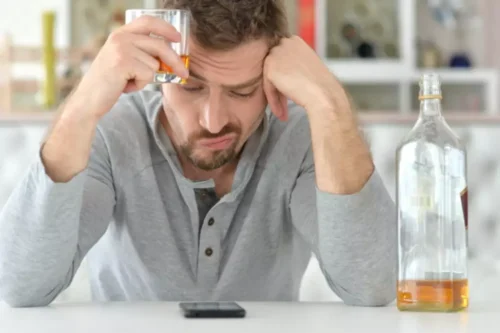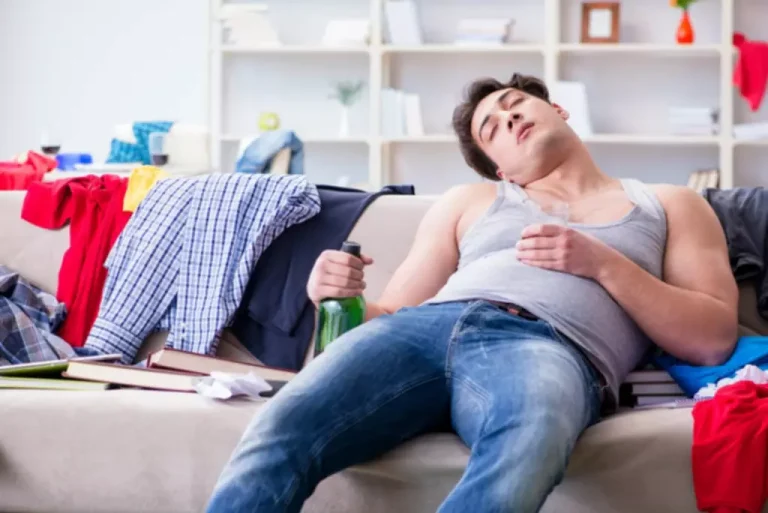
Transgender Survey, transgender people report having higher rates of alcohol use disorder to cope with anti-trans discrimination. Depression and alcohol use disorder (AUD) are the most commonly diagnosed co-occurring disorders. Experiencing both conditions at the same time heightens the severity of symptoms and increases the risk of suicidal thoughts and actions. We offer evidence-based therapies such as Cognitive Behavioral Therapy (CBT), Dialectical Behavior Therapy (DBT), and mindfulness techniques. These approaches are proven to help clients manage the effects of alcohol, address drinking habits, and build resilience to support long-term recovery.

Alcohol and Depression: The Link Between Alcoholism and Depression
In addition, seniors tend to process alcohol less well than younger people, and might be taking medications that interact with drinking, researchers added. There are a few factors to consider when it comes to the effects of alcohol on mental and emotional health. Lifestyle interventions play a crucial role in managing depression. Regular physical activity, a balanced diet, adequate sleep, and mindfulness practices like meditation can improve mood and overall well-being. Building and maintaining a solid support network of friends, family, or support groups can provide emotional support and a sense of community. Psychotherapy, such as cognitive-behavioral therapy (CBT), can help individuals understand and change their thought patterns and behaviors related to both depression and alcohol use.
Lowers serotonin and norepinephrine

The phrase feeling depressed has become a well-known and commonly used term to describe a feeling of sadness or feeling down. Your doctor will likely conduct a physical exam and a psychological evaluation. These tests help them calculate your risk factors for either condition. This multi-test approach will help them rule out other https://ecosoberhouse.com/ conditions that might account for your symptoms. When we can stick to moderate drinking, however, we usually feel pretty good about ourselves. Overall, the authors of the research say it is vital that people are given support when they retire to prevent them from turning to heavy alcohol use to help them adjust to the change.
- There is also evidence that alcohol consumption can cause increased levels of neuroinflammation.
- FOLX now offers mental health care in select states, with more being added.
- We discussed how alcohol impacts mental health, particularly depression.
What’s the Connection Between Alcohol and Depression?

Following a Mediterranean diet rich in omega-3s, for example, might be one recommendation. Depression can also be directly caused by alcohol in the case of a substance-induced disorder. Alcoholics anonymous (AA) and alcohol treatment centers offer classes and support group meetings. In these, you can also find support from others in the same situation. In addition, your doctor may prescribe medicines that are meant to lower alcohol cravings, which can reduce your desire to drink. Previous research has found that older people are more likely to Alcoholics Anonymous be depressed than in the past.
- Though these types of feelings and experiences are universal, they usually resolve themselves in short periods.
- In addition, it inhibits the action of glutamate, a neurotransmitter that increases brain activity and energy levels.
- Avoiding self-medication with substances like alcohol is critical, as this can worsen depression and lead to additional health problems.
- But just as sure as the sun rose, the depression was still there.
- Here at New Directions for Women, we assist women in overcoming alcohol addictions.
- This includes slowed cognitive functions, impaired coordination, delayed reaction times, and dulled sensory perceptions.

This isolation can intensify depressive symptoms and contribute to a sense of hopelessness. Alcohol acts as a depressant through its interaction with the brain’s neurotransmitters, which are chemicals that transmit signals in the brain and nervous system. It enhances the effects of GABA (gamma-aminobutyric acid), a neurotransmitter that has inhibitory effects on brain activity. By increasing GABA’s effectiveness, alcohol promotes relaxation, reduces stress, and lowers inhibitions, leading to the depressant effects on the CNS. In addition, it inhibits the action of glutamate, a neurotransmitter that increases brain activity and energy levels. Alcohol inhibits glutamate’s excitatory effects, further slowing down brain function and contributing to the depressant effect.
- For other individuals, the actual symptoms of a depressive disorder can impact and influence AUD development.
- However, when combined with therapy and medications, the impact can be quite significant in a short period of time.
- Drinking a lot may worsen these feelings, which may actually drive further drinking.
- These health problems can exacerbate feelings of despair and helplessness, creating a cycle that is difficult to break.
- Her fields of interest include Asian languages and literature, Japanese translation, cooking, natural sciences, sex positivity, and mental health.
- In some cases, if you are physically dependent on alcohol it can be harmful to stop suddenly.

In residential treatment, “an individual stays in a treatment setting, receives intensive therapy, and is physically separated from alcohol in order to recover,” says Kennedy. Individuals diagnosed with clinical depression should be extremely cautious when it comes to using substances such as alcohol. does alcohol make depression worse According to Kennedy, for those taking antidepressants, combining them with alcohol can reduce their efficacy. Treating one of these conditions may improve symptoms for both. However, for the best results, your doctor will likely treat them together. Likewise, if you’re diagnosed with one of these conditions, your doctor may ask about symptoms of the other.
- Whether you or your loved ones have these red flags, it is vital to get professional help.
- Spending time in nature can also have health benefits, including improving your mood.
- This cycle highlights the importance of seeking comprehensive care that understands and addresses the interrelated nature of these disorders.
- Low serotonin levels are linked to feelings of depression and low energy.
